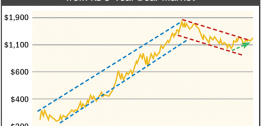The North American Free Trade Agreement (NAFTA) and the Paris Accord will both impact the near future of the U.S. chemical industry. But how?
Probably not in a good way.
NAFTA is huge for U.S. chemical companies. Trade with their top consumer base has tripled since 1994. But now, President Trump threatens to dismantle and renegotiate NAFTA. The chemical companies don’t want to trudge through a mess that’s sure to interfere with business.
All the while, the European Union is looking through the lens of the Paris Agreement at the plastic that’s polluting oceans. Leaders are asking: How can we get chemical makers to do better for the common good?
The chemical industry is also responsible for an eighth of global greenhouse emissions. Some believe the industry has a “diesel moment” coming its way. One where enough consumer and activist backlash will expedite regulatory pressures to force the industry to transition to sustainable processes sooner.
Together, NAFTA negotiations and regulations coming through the Paris Agreement are big risks. But for now, they are only risks. More urgently, we should position against the chemical industry because of what price action is telling us.
Chemical company stocks and the entire basic materials sector performed very well since the start of 2016. However, I think that will soon end.
Chart and pattern analysis suggest the broader market could undergo a 23% correction over the next two to three months. Hedges will prove wise.
Since the basic materials sector also looks overextended by certain measures, I think that’s a good place to add some protection.
I recommend using the ProShares UltraShort Basic Materials ETF (SMN). A whopping 83% of SMN’s underlying index exposure is to chemicals. BE ADVISED: this is a LEVERAGED ETF that is designed to move twice as fast as the underlying basic materials index.
Using 5% of your funds allocated to the Materials Energy & Ags section, buy ProShares UltraShort Basic Materials ETF (SMN) at the market, to open.



